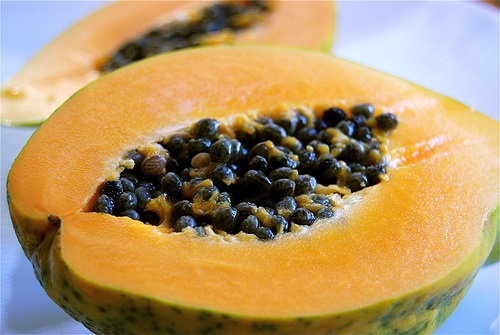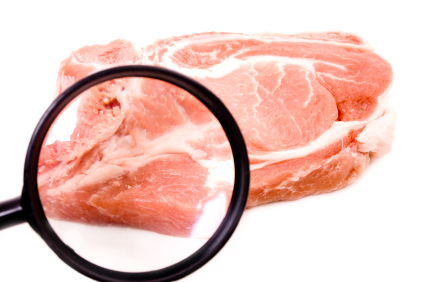2. Genetically Engineered Papaya
It is sadly to know, but you must be aware of the fact that most Hawaiian papaya is now genetically engineered.
This step was taken in order to make the fruit resistant to the ringspot virus. Many recent studies show that animals fed with genetically engineered foods, like corn and soy, suffer a wide range of diseases and disorders, including intestinal damage, multiple-organ damage, massive tumors, birth defects, premature death, and near complete sterility by the third generation of offspring.
Unfortunately, the gigantic lab experiment regarding human casualties is only about 10 years old, meaning we are decades away from the final results about the harmful effects on human health.
Where it’s banned: The European Union
Unfortunately, you can not expect that at this point the US government will be in a position to make reasonable and responsible decisions regarding the genetically engineering, if you take into consideration the fact that the Obama administration has placed Michael Taylor, the former Monsanto attorney and Vice President, in charge of US food safety, and there are some serious conflicts of interest even within the US Supreme Court!
You read that well. Supreme Court Justice Clarence Thomas is also a former Monsanto attorney, but however, he refuses to acknowledge any possible conflict of interest.
3. Ractopamine-Tainted Meat
The beta agonist drug ractopamine is actually a repartitioning agent that increases the protein synthesis. It was recruited for livestock use when the results of many studies showed that the drug, commonly used in treating asthma, increased the muscle mass in mice, meaning it reduces the overall fat content of the meat.
Today, in the US ractopamine is used in about 45% of the pig farms, 30% of the ration-fed cattle, and an unknown percentage of turkeys are literally pumped full of this drug during the days before the slaughter.
Even worse is the fact that up to 20 percent of the ractopamine remains in the meat sold in the supermarkets, according to veterinarian Michael W. Fox.
Since 1998, there are records claiming that more than 1,700 people have been “poisoned” from eating pork coming from farms where pigs were fed with the drug, and -- pay special attention to this one -- ractopamine is banned from use in the food animals eat in no less than 160 different countries, and it is all due to its harmful and disastrous health effects!
Russia issued a ban on the meat imported from the US, which became effective on February 11, 2013, and the country remains strict to this question until the US agrees to certify that the meat is ractopamine-free.
What is worse, in the US the meat sold in markets is not even tested for the presence of this drug. In animals, ractopamine is associated with malfunction of the reproductive system, increase of mastitis in dairy herds, and increased death rate and disability.
Researchers have also found that it affects the human cardiovascular system, and rastopamine is held as responsible for hyperactivity. It may also cause chromosomal abnormalities and behavioral changes.
Where it’s banned: 160 countries across Europe, Russia, mainland China and Republic of China (Taiwan)
The article continues on page 3…




Comments